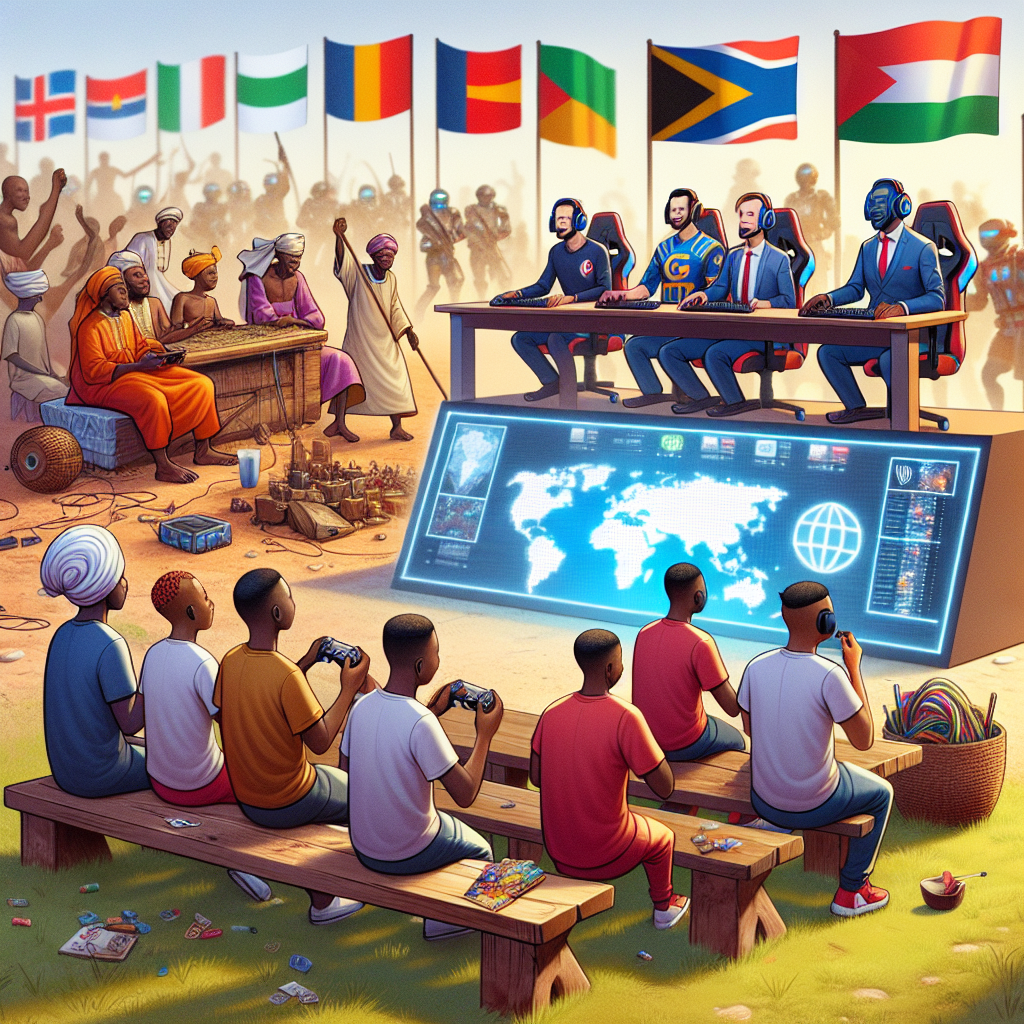African Esports Revolution: From Grassroots to Global Competitions
As the digital age dawns, a remarkable transformation is unfolding in Africa—a continent renowned for its rich cultural tapestry and diverse communities. This transformation is centered around the burgeoning field of esports, which has evolved from grassroots initiatives into a thriving ecosystem that now garners attention on the global stage. With its unique challenges and the collective spirit of its youth, Africa is carving a niche in the competitive gaming landscape, heralding an esports revolution.
The Rise of Esports in Africa
Historically, esports were seen as a pastime, often relegated to the fringes of gaming culture. However, the landscape began to shift dramatically in the early 2010s. With the rapid proliferation of high-speed internet access and the increasing accessibility of gaming hardware, the continent’s youth, who are often referred to as the digital natives, began to embrace competitive gaming.
In many African nations, grassroots organizations sprung up, fostering local tournaments across popular titles such as FIFA, League of Legends, Dota 2, and Counter-Strike: Global Offensive. These tournaments served not only as platforms for aspiring players to showcase their skills but also as community-building events that united gamers from different backgrounds.
Key Drivers of the Esports Growth
1. Access to Technology
With smartphones and affordable internet becoming more widespread, the potential for competitive gaming has exploded. Gaming cafes have emerged as popular hubs where players can gather, forming communities that encourage competition and collaboration. This accessibility has been a game-changer for players from economically diverse backgrounds.
2. Talent Development
Recognizing the potential of esports, various organizations, educational institutions, and government bodies have started initiatives to cultivate talent. Programs emphasize training, mentorship, and career development, enabling young players to navigate the esports landscape effectively.
3. Media Exposure and Sponsorship
As the popularity of esports has surged, so too has the interest from corporations and sponsors. Brands are increasingly engaging with the esports community, providing financial support for tournaments and player sponsorships. Moreover, dedicated platforms for streaming, such as Twitch and YouTube Gaming, have given African gamers a chance to showcase their skills to global audiences, attracting further investment.
4. Esports Leagues and Tournaments
The establishment of local and continental leagues has injected a competitive spirit into the esports ecosystem. The African Esports Alliance and other such organizations have initiated competitions that not only elevate local players but also provide a pathway to international tournaments. These leagues are crucial in professionalizing esports in Africa.
Challenges Along the Way
Despite the rapid growth, the African esports scene faces formidable challenges. Infrastructure varies significantly across the continent, with some regions lacking the necessary facilities to host major tournaments. Additionally, issues such as internet connectivity and power outages can hinder participation and performance.
Moreover, misconceptions surrounding gaming as a viable career path persist in some communities. Parents and elders often see gaming merely as a hobby, underestimating its potential for professional success. As the esports narrative evolves, educating the public and advocating for recognition of gaming careers remain critical hurdles to overcome.
Success Stories and Role Models
As the esports landscape matures, several African gamers have emerged as icons, inspiring the next generation. Players like Soma, a South African FIFA champion, and Thabo“Zerocity”Mkhwanazi, a recognized League of Legends player, have established themselves on international platforms, showcasing the talent that Africa has to offer.
Organizations such as Black Gaming, Team Uprising, and Gamer Connect are paving the way for aspiring players, creating spaces where they can thrive and achieve their dreams. They also play a vital role in advocating for fair treatment and proper funding for esports athletes in Africa.
The Future of African Esports
As Africa continues to invest in the esports ecosystem, the potential for growth is staggering. With increasing awareness, training programs, and financial backing, the future is bright for aspiring gamers. Furthermore, as the continent emerges as a hub for esports, opportunities for hosting international events are on the horizon.
Ultimately, the African esports revolution represents more than just competition—it’s about community, career development, and cultural pride. The landscape is still evolving, and if current trends continue, Africa may well become a formidable player in the global esports arena, fostering talent that can compete with the best in the world.
Conclusion
The African esports revolution is a testament to the power of resilience, innovation, and community. While challenges remain, the passion and dedication of the continent’s youth are driving this movement towards undeniable success. As we stand on the precipice of the next big chapter in gaming, the world watches with anticipation—Africa is ready to make its mark on the global esports stage.




